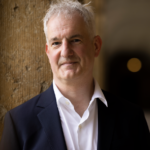
Treating Persecutory Delusions:: The Feeling Safe Programme
Treating Persecutory Delusions:: The Feeling Safe Programme
Information
Date & Time
-
-
Learning Objectives
Participants will be able to:
-
Provide an overview of the content of the Feeling Safe Programme.
-
Identify 2 values of the Feeling Safe Programme.
-
Explain the therapeutic style of the Feeling Safe Programme.
-
Discuss the development process of the Feeling Safe programme and how people with lived experience of psychosis contributed to that development.
Educational Goal
Description
The presentation is an introduction to the Feeling Safe Programme, which is a new cognitive-behavioral treatment for patients with psychosis. Developed with over a decade of research, it is the most effective psychological treatment for persecutory delusions. Half of the patients have recovered from their persecutory delusions with the Feeling Safe Programme.
Target Audience
- Addiction Professional
- Counselor
- Marriage & Family Therapist
- Psychologist
- Social Worker
Presenters

Professor Daniel Freeman is the world’s leading researcher of paranoia. He holds the Chair of Psychology at the University of Oxford and is a Professorial Fellow of Magdalen College, Oxford. Daniel is a consultant clinical psychologist in Oxford Health NHS Foundation Trust, a National Institute for Health and Care Research (NIHR) Senior Investigator, and leads the Oxford Cognitive Approaches to Psychosis (O-CAP) research group. A Fellow of the British Academy, he presented the BBC Radio 4 series A History of Delusions and has described his clinical research career in a new book, Paranoia: A Journey into Extreme Mistrust and Anxiety.
Financially Sponsored By
- APA Division 18: Psychologists in Public Service